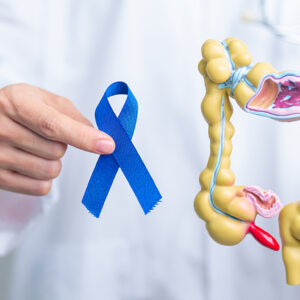Dilated cardiomyopathy (DCM) is characterized by dilation and limited contraction of the left or both ventricles. The prevalence is approximately 1:2,500. The disease is usually accompanied by progressive heart failure. There is a significantly increased risk of arrythmias, thromboembolism and sudden cardiac death. Although therapy has improved, 5-year survival rates of 36-80% have been reported. It has been shown that only half of the DCM cases with an unclear cause are actually idiopathic (IDCM) and are not caused indirectly by other primary diseases. Consequently, it is important to rule out secondary dilated cardiomyopathy as thoroughly as possible before genetic diagnosis is undertaken.
In up to 40% of cases, IDCM is genetically determined and usually inherited autosomal dominantly. The early identification of carriers is essential to positively influence the course of the disease. The phenotype also depends on the penetrance and malignancy of the affected gene. Patients with pathogenic TTN variants usually show a milder course and respond better to therapy. However, ventricular arrythmias were also more commonly reported in these patients. Patients with pathogenic variants in the LMNA, PLN, RBM20, FLNC, DES and SCN5A genes have an increased risk for a worse prognosis and for malignant arrythmias.
The genetic causes of IDCM/familial DCM (FDCM) are heterogeneous; over 40 pathogenic genes are now known. Variants in the LMNA gene, which codes for structural proteins of the inner nuclear membrane, were identified in connection with DCM more than ten years ago. A large study found that approximately 6-8% of IDCM/FDCM patients carry variants in LMNA. In addition, changes in various sarcomere proteins have been shown to be a frequent cause of IDCM/FDCM. About a quarter of all cases carry variants in the genes of the heavy chain of ß-myosin (MYH7), myosin binding protein C (MYBPC3) and troponin T (TNNT2). Although variants in these genes have been described much more frequently in connection with hypertrophic cardiomyopathy, more than 100 different variants specific to DCM are now known. With the analysis of four commonly affected genes, pathogenic variants can be detected in about one third of all IDCM/FDCM cases.
Recent studies in over 300 IDCM patients have shown that variants in the largest human gene titin (TTN) are causally related in about 25% of cases. These are severe variants that lead to functional loss. However, the penetrance of these variants is not complete, so that the causation in each family should be verified by the targeted analysis of several family members. Due to its size, this gene can only be analyzed using new sequencing methods. This method also offers the advantage that more than 30 genes in which variants associated with DCM have frequently been identified can be analyzed in parallel.
References
Bondue et al. 2018 Cardiovasc Res 114:1287 / Walsh et al. 2017, Genet Med 19:192 / Schafer et al. 2017, Nat Genet 49:46 / Watkins et al. 2015, Sci Transl Med 7:270 / Herman et al. 2012, N Engl J Med 366:619 / Lakdawala et al. 2012, J Card Fail 18:296 / Møller et al. 2009, Eur J Hum Genet 17:1241 / Millat et al. 2009, Clin Biochem 42:892 / Parks et al. 2008, Am Heart J 156:161





















